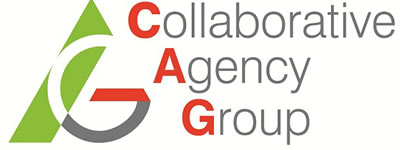
26 Jun Alan November

Speaker: Alan November
Educator and International Thought Leader in Education Technology
Topics:
- Teaching Zack to Think: Critical Thinking Skills on the Net
- Creating a New Culture of Teaching and Learning
- Smart School Design
- Building Learning Communities
- Cultivating a World-Class Work Ethic
- Motivating Zack
Keynote speaker Alan November thrives on confirming and challenging educators’ thoughts about what’s possible in the world of teaching and learning. More than anything, he is a teacher at heart, with a wealth of experience teaching learners of all ages.
Speaker Alan November is an international leader in education technology. He began his career as an oceanography teacher and dorm counselor at an island reform school for boys in Boston Harbor. While Alan was a computer science teacher in Lexington, MA, he was probably the first teacher in the world to have a student project on line in 1984, a database for the handicapped. He has been director of an alternative high school, computer coordinator, technology consultant and university lecturer. He has helped schools, governments and industry leaders improve the quality of education through technology.
Keynote speaker Alan November pushes the boundaries of how to improve teaching and learning. His areas of expertise include planning across curriculum, staff development, new school design, community building and leadership development. He has delivered keynotes and workshops in all fifty states, across Canada and throughout the UK, Europe, Asia, Australia, and Central America.
Alan was named one of the nation’s fifteen most influential thinkers of the decade by Technology and Learning Magazine. In 2001, he was listed as one of eight educators to provide leadership into the future by the Eisenhower National Clearinghouse. In 2007, he was selected to speak at the Cisco Public Services Summit during the Nobel Prize Festivities in Stockholm, Sweden. His writing includes numerous articles and two best-selling books, Empowering Students with Technology and Web Literacy for Educators. Alan was co-founder of the Stanford Institute for Educational Leadership Through Technology and is most proud of being selected as one of the original five national Christa McAuliffe Educators.
Each summer Alan leads the Building Learning Communities summer conference with world-class presenters and international participants.
Teaching Zack to Think: Critical Thinking Skills on the Net
Too many students are not sure how to separate fact from fiction on the Internet. The Internet can provide any version of the truth to support almost any belief. We can teach students how to read the “grammar” of the Internet and apply strategies to validate information on a website. This popular workshop porvides step-by-step teaching tips that help students and teachers think critically about Internet information.
Creating a New Culture of Teaching and Learning
A powerful new culture of empowered teaching and fearless learning is emerging. Access to more timely information and communication tools can empower educators to focus on the individual learning needs of their students. These same tools can lead to more collegiality, build stronger community relationships and empower students to be more self-directed. This workshop presents clear examples of how this new culture has been achieved.
Smart School Design
School design can have a significant impact on the culture of learning in your school. New models of school design are emerging that support a wide range of learning styles and take full advantage of global communications. Access to powerful technologies can free designers to build smaller, more intimate schools. Alan examines school models from around the US and UK to illustrate powerful new ways of creating learning spaces.
Building Learning Communities
We now have tools to build and strengthen our learning communities. We have the opportunity to provide our students with authentic assesment relationships over the Web that can help dramatically improve student motivation. We can take advantage of the communication tools the Internet provides, such as blogs, IM, Skype, video conference or email. Research suggests many students are more willing to ask for help and accept criticism when they are online.
Cultivating a World-Class Work Ethic
In an economy where global outsourcing is commonplace, students must be prepared to participate in an increasingly competitive job market. In many ways they are in competition with bright, energetic, hardworking students from all over the world. In this workshop Alan discusses some of the ways we can empower our students, help them build a strong work ethic and develop self-directed learning skills. We should not underestimate what our students are capable of achieving.
Motivating Zack
From Alan’s work as an educator on an island reform school to directing and alternative high school, much of his experience has focused on motivating at-risk students. Online communication can be a powerful tool for engaging students to be active learners. For example, students who never raise their hand in class can become eager to participate online. Many at-risk students are also more willing to accept criticism from an anonymous reviewer over the Internet. This workshop presents some creative ideas for using technological tools to help improve student motivation and focus on learning.
Leadership: Managing the Transition
This workshop outlines essential skills for leadership and offers practical guidelines and creative solutions for building accountability into the planning process. Articulating vision and mission, managing change and aligning technology to primary goals are emphasized. A shift in planning from technology to the quality and application of information and communication is a critical next step.
Preparing Teachers for Today
This workshop targets the challenges beginning teachers and teacher educators often face. It explores critical skills teachers should know, such as information literacy. Practical ideas of moving curriculum and assessment to the Web are reviewed, along with suggestions on how to link students to primary sources, create authentic assessments and strengthen community support.
Aligning Technology to the Standards
Data driven Web-based technologies can be a powerful tool to help manage and support standards. Technology can provide online-assessment, links to content-specific resources and activities, simulations, real time reporting to families, extensive portfolios of student work and much more. This workshop is designed to show how technologies can be aligned to support standards and how we can move beyond the standards.
Writing, Writing, Writing
Writing is an essential skill and a key to academic success. Technology can be harnessed to provide student writers with inspiration, boundless resource and an authentic audience. Students can publish their work or peer edit with anyone around the world. They can share ideas and projects in a global forum. Tapping into authentic audience can improve writing skills and motivation to write. This workshop is filled with hands on suggestions, websites and exercieses to get your students excited about writing.
From Smart Toilets to Smart Schools
This popular workshop provides a provocative and humorous look at ways to use technology to improve learning. Alan challenges participants to examine basic assumptions about how to move beyond flushing curriculum faster, to creating visions that provide students and communities with survival skills for a global economy. This workshop leads to a shift in thinking from technology to a focus on the quality of information and communication technology can offer.
Teaching with Primary Resources
Learning from primary resources can be far more meaningful than reading a textbook. Technology provides a mountain of primary resources, be it documents, museums or scientists at NASA. Learn how to effectively use these primary resources in your classroom and establish links to the outside community. Empower your students to become active participants in their learning and engaged researchers.





